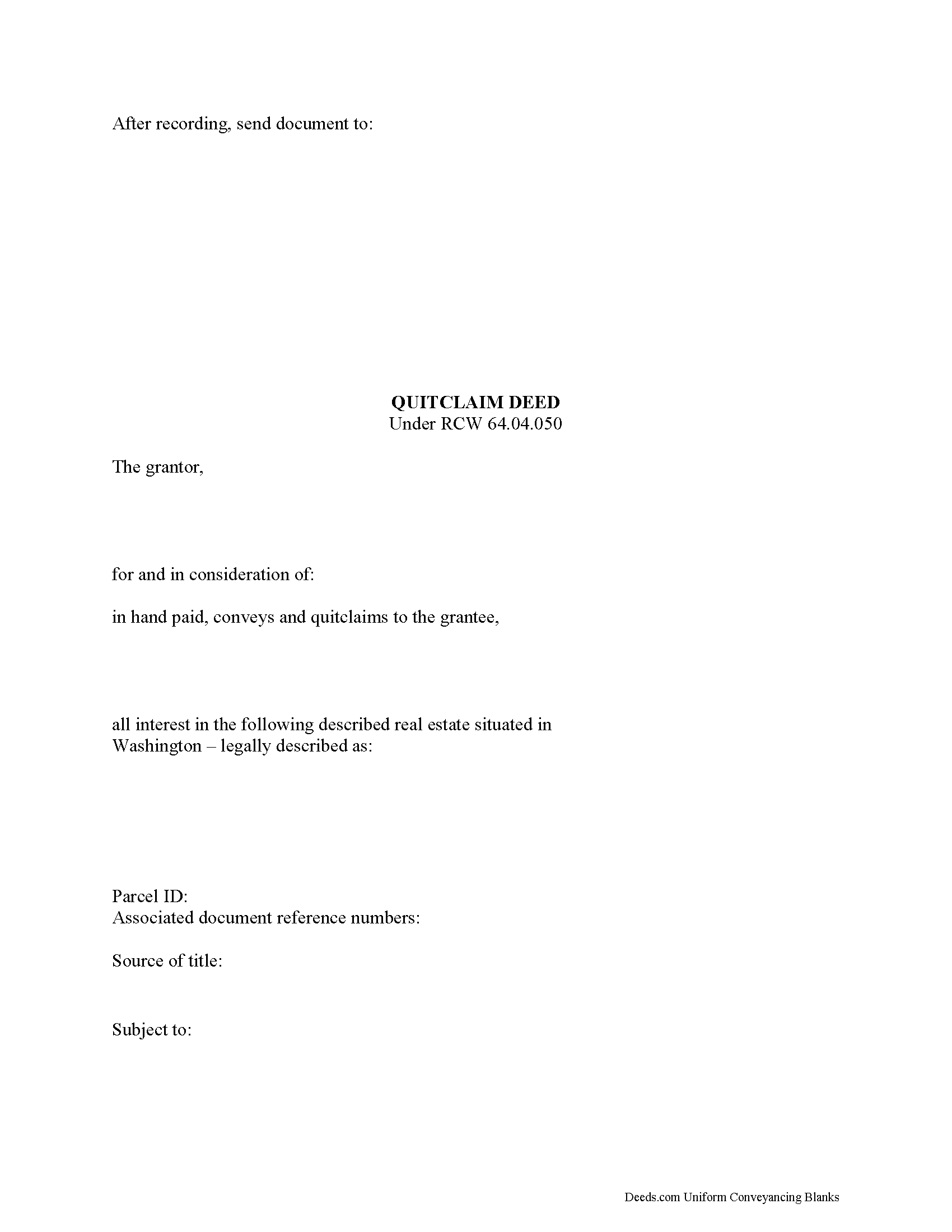Washington Quitclaim Deed Forms

Washington Quitclaim Deed Overview

How to Use This Form
- Select your county from the list on the left
- Download the county-specific form
- Fill in the required information
- Have the document notarized if required
- Record with your county recorder's office
When presenting a quitclaim deed to the county auditor in the state of Washington, it is required to be in writing, signed by the parties bound to it, and acknowledged by a person who is authorized to take acknowledgments. Additional formatting requirements will apply to a quitclaim deed. If a quitclaim deed that relates to community or separate property includes a description of real estate that is described by lot and block or addition or plat, it will not be admitted to record until the plat of such an addition has been made a matter of record (RCW 65.04.30).
In order for a quitclaim deed to be valid against a later buyer who purchases the same property in good faith and for a valuable consideration, it must be recorded with the county auditor in the county where the property is situated. The priority of a quitclaim deed is determined by the order of recording. In the state of Washington, the moment a quitclaim deed is filed for record, it is considered recorded.
(Washington QD Package includes form, guidelines, and completed example)
Important: County-Specific Forms
Our quitclaim deed forms are specifically formatted for each county in Washington.
After selecting your county, you'll receive forms that meet all local recording requirements, ensuring your documents will be accepted without delays or rejection fees.
How to Use This Form
- Select your county from the list above
- Download the county-specific form
- Fill in the required information
- Have the document notarized if required
- Record with your county recorder's office
Common Uses for Quitclaim Deed
- Transfer property between family members
- Add or remove names from property titles
- Transfer property into or out of trusts
- Correct errors in previously recorded deeds
- Gift property to others